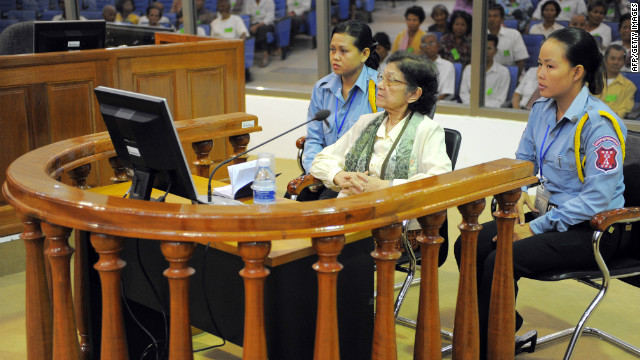By Irving Feng
Impunity Watch Reporter, Asia
KARACHI, Pakistan – Protests over the anti-Islam film “Innocence of Muslims” has spread throughout Asia, erupting in violent clashes between demonstrators and police.

Muslims in Indonesia, Pakistan, the Philippines, Yemen and the territory of Kashmir have taken to the streets to burn American flags, denounce the United States, and storm American embassies. The protestors are furious over the film’s depiction of the Prophet Muhammad. The low-budget, independent film characterizes the prophet as a fraud, womanizer, and pedophile.
On Monday, September 17, in Pakistan, protestors set fire to a press building and a government building in Khyber Pakhtunkhwa. Several hundred protestors clashed with police shortly after the acts of vandalism. The police fired on the mob killing at least one protestor and wounding several others. The demonstrators allegedly set fire to the buildings to get more press coverage for their cause.
Protestors in southern Pakistan also clashed with police one day prior. Protestors attempted to storm the U.S. Consulate in Karachi resulting in the death of one protestor and wounding a dozen more. Despite these eruptions of violent protest, there have also been many peaceful protests including a demonstration attended by thousands of students and teachers in the town of Chaman.
Elsewhere in Asia, protestors assaulted the U.S. Embassy in Jakarta with rocks and Molotov cocktails. Indonesian Muslims, outraged by the anti-Islam film took to violence resulting in the hospitalization of eleven injured police officers and the arrests of four protestors. American flags and photographs of U.S. president Barak Obama were being burned in the streets. Protestors hold the U.S. responsible for the production of the independent anti-Islam film.
15,000 protestors have taken to the streets in the region of Kashmir to protest the film “Innocence of Muslims,” burn American flags, and demanded the expulsion of all Americans from their territory. The government in Kashmir has advised all Americans travelling in the region to leave immediately before protests escalate to the levels present in other parts of Asia and the Middle East. The U.S. Embassy in the region also sent out an advisory warning for all citizens to leave immediately.
The origin of the film is still shrouded a mystery, however, there are reports that link it to a California man who has been convicted of fraud named Nakoula Basseley Nakoula. The movie trailer has not been removed from internet video site, Youtube, since the clip of the film falls within the guidelines set up by the site. Access has been restricted, however, in countries such as India and Indonesia where the content of the trailer is deemed illegal.
For further information, please see:
The Jakarta Post – Film protest turns violent – 18 September 2012
Shanghai Daily – Muslims in fury over anti-Islam US movie – 18 September 2012
BBC – Anti-Islam film: Thousands protest around Muslim world – 17 September 2012
Reuters – Muslim protesters rage at United States in Asia, Middle East – 17 September 2012
The Washington Post – Indonesians upset with anti-Muslim film clash with police outside US Embassy; at least 12 hurt – 17 September 2012
Hurriyet Daily News – Thousands in Kashmir protest anti-Islam film as cleric demands Americans ‘leave’ – 14 September 2012



